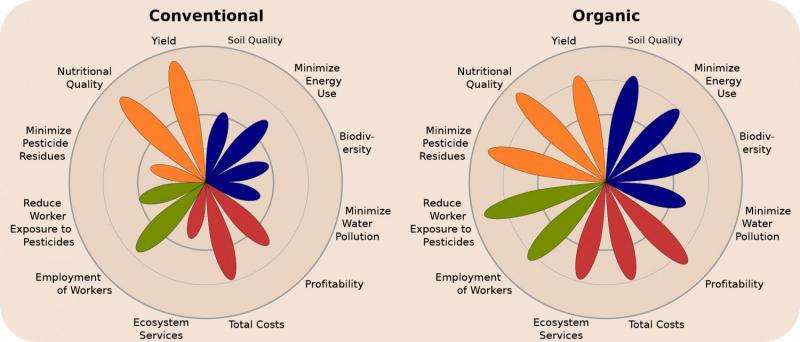Organic Food
Organic Food, Farming/Gardening, Wellness
Via the Mayo Clinic -- "Food is, in many ways, 'nature's medicine'... with a vital connection between food and wellness..."
···········································································································
Via The Guardian / Pesticides in Your Food? Time to Go Organic
- February 2019 / When deciding whether to buy organic food: does it really make a difference?
···········································································································
https://www.helpguide.org/wp-content/uploads/2018/11/tomato-cheese-pesto-500.jpg
Via Harvard Health
• https://www.helpguide.org/articles/healthy-eating/organic-foods.htm
• https://www.helpguide.org/articles/healthy-eating/healthy-food-for-kids.htm
• https://www.helpguide.org/home-pages/nutrition-for-seniors.htm
• https://www.helpguide.org/home-pages/healthy-eating.htm
• https://www.helpguide.org/articles/diets/the-mediterranean-diet.htm
Organic foods provide a variety of benefits. Some studies show that organic foods have more beneficial nutrients, such as antioxidants, than their conventionally grown counterparts. In addition, people with allergies to foods, chemicals, or preservatives often find their symptoms lessen or go away when they eat only organic foods.
*Organic produce contains fewer pesticides. Pesticides are chemicals such as fungicides, herbicides, and insecticides. These chemicals are widely used in conventional agriculture and residues remain on (and in) the food we eat. *Organic food is often fresher. Fresh food tastes better. Organic food is usually fresher because it doesn’t contain preservatives that make it last longer. Organic produce is often (but not always, so watch where it is from) produced on smaller farms near where it is sold. *Organic farming is better for the environment. Organic farming practices reduce pollution (air, water, soil), conserve water, reduce soil erosion, increase soil fertility, and use less energy. Farming without pesticides is also better for nearby birds and small animals as well as people who live close to or work on farms. *Organically raised animals are NOT given antibiotics, growth hormones, or fed animal byproducts. The use of antibiotics in conventional meat production helps create antibiotic-resistant strains of bacteria. This means that when someone gets sick from these strains they will be less responsive to antibiotic treatment. Not feeding animal byproducts to other animals reduces the risk of mad cow disease (BSE). In addition, the animals are given more space to move around and access to the outdoors, both of which help to keep the animals healthy. *Organic food is GMO-free. Genetically Modified Organisms (GMOs) or genetically engineered (GE) foods are plants or animals whose DNA has been altered in ways that cannot occur in nature or in traditional crossbreeding, most commonly in order to be resistant to pesticides or produce an insecticide. In most countries, organic crops contain no GMOs and organic meat comes from animals raised on organic, GMO-free feed.
• http://en.wikipedia.org/wiki/Organic_food
Organic foods are foods produced by organic farming. While the standards differ worldwide, organic farming in general features cultural, biological, and mechanical practices that foster cycling of resources, promote ecological balance, and conserve biodiversity. Synthetic pesticides and chemical fertilizers are not allowed, although certain organically approved pesticides may be used under limited conditions. In general, organic foods are also not processed using irradiation, industrial solvents, or synthetic food additives.
Currently, the European Union, the United States, Canada, Mexico, Japan and many other countries require producers to obtain special certification in order to market food as organic within their borders. In the context of these regulations, organic food is food produced in a way that complies with organic standards set by national governments and international organizations. Although the produce of kitchen gardens may be organic, selling food with the organic label is regulated by governmental food safety authorities, such as the US Department of Agriculture (USDA) or European Commission.
• http://en.wikipedia.org/wiki/Organic_farming
Organic farming was championed in the United States by J.I. Rodale, beginning in the mid-1940s. "The organic farmer and gardener must realize that fertilization is not the only measure for success. He must treat the soil as a living, breathing entity. He must rotate crops. He must fallow the land at regulated intervals. The organiculturist must not practice one-crop monoculture but must engage in a balanced agriculture with cattle as part of the general program. He must be smart in the ways of soil and crops, observing the reaction of the land to the actions of man. For instance, he must know when to plant, when to harvest, and what varieties of seed to use. Compost alone does not make a successful gardener any more than does gardening without compost." ["The Organiculturist’s Creed," in The Organic Front]
Defined by USDA Team on Organic Farming:
- "Organic farming is a production system which avoids or largely excludes the use of synthetically compounded fertilizers, pesticides, growth regulators, and livestock feed additives.
USDA National Organic Standards (Initially 1995):
"Organic agriculture is an ecological production management system that promotes and enhances biodiversity, biological cycles and soil biological activity. It is based on minimal use of off-farm inputs and on management practices that restore, maintain and enhance ecological harmony. ‘Organic’ is a labeling term that denotes products produced under the authority of the Organic Foods Production Act. The principal guidelines for organic production are to use materials and practices that enhance the ecological balance of natural systems and that integrate the parts of the farming system into an ecological whole.”
"Organic food is produced by farmers who emphasize the use of renewable resources and the conservation of soil and water to enhance environmental quality for future generations. Organic meat, poultry, eggs, and dairy products come from animals that are given no antibiotics or growth hormones. Organic food is produced without using most conventional pesticides; fertilizers made with synthetic ingredients or sewage sludge; bioengineering; or ionizing radiation. Before a product can be labeled "organic," a Government-approved certifier inspects the farm where the food is grown to make sure the farmer is following all the rules necessary to meet USDA organic standards. Companies that handle or process organic food before it gets to your local supermarket or restaurant must be certified..."
○
